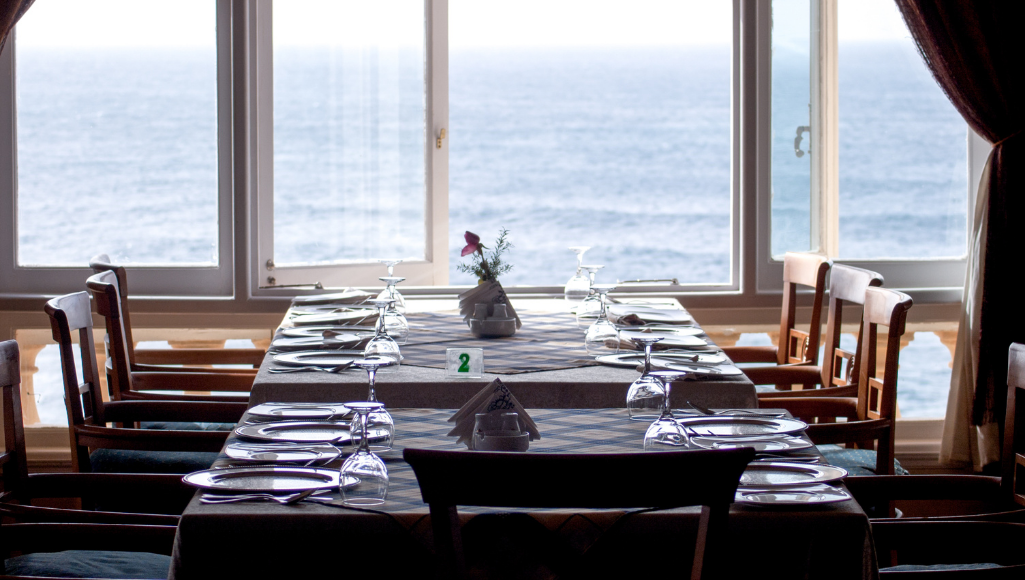
How Public Health Has Impacted Cruise Ship Hotel Operations
With the resumption of cruising comes great responsibility to those who are involved in providing and maintaining the ultimate onboard experience. Professionals from hotel operations, in particular, have been tasked with incorporating innovative solutions to not only comply with requirements aimed at COVID-19 mitigation, but also to ensure they continue to provide their guests with an unforgettable cruise ship vacation.
Recently, our team attended the Marine Hotel Association’s Symposium at Sea, where they spoke with some of key players in the cruise industry about what they’ve implemented onboard so far and what they continue to see trending going into 2022. Here is what we’ve learned.
Green & Digital Initiatives are Transforming Food & Beverage
Shared items, such as menus and serving utensils, that are frequently touched by many different people, have been phased out and replaced as cruise lines embrace digital technology, such as QR codes and apps, to make ordering food seamless, efficient, and safer. Self-serve, buffet dining options have also been transformed to have crew members serve guests from behind protective screens or directly at their tables. According to those we’ve spoken to, these initiatives have helped limit the spread of infection and have significantly contributed to COVID-19 mitigation onboard, while also reducing the amount of food waste.
Mobile phone apps used for restaurant bookings have given guests more control over where they sit and when they eat, while subsequently supporting improved contact tracing capabilities. With the reduction of guest capacities to help facilitate physical distancing, vessels are sailing with most, if not all, of their usual crew compliments. As a result, the guest-to-crew ratio on cruise ships right now — and the resulting service levels — is at an unprecedented point. One of the challenges for food and beverage professionals going forward will be, how to maintain these service levels as guest numbers increase.
Hygiene Technology is Becoming More Prominent in the Industry
Effective handwashing has long been proven to prevent the transmission of certain communicable illnesses, such as respiratory and foodborne diseases. In a semi-closed environment, such as a cruise ship, SARS‑CoV‑2 as well as the infamous Norovirus can spread rapidly without proper hand hygiene protocols in place. The COVID-19 pandemic has been a moment of change for attitudes towards handwashing, further driving COVID-19 mitigation efforts.
Recently VIKAND has partnered with PathSpot, whose product has the potential to revolutionize handwashing practices throughout the global maritime industry. The PathSpot Hand Hygiene System scans hands for harmful contaminants that spread common illnesses in just few seconds, providing operators with the ability to check handwashing efficiency in real-time. PathSpot detects contaminants using light fluorescence spectroscopy, an imaging technology frequently used in the healthcare space. After someone washes their hands, they place them below the PathSpot device and a green or red light will appear almost instantaneously to indicate whether their hands have been effectively cleaned, or if they need to re-wash them.
Goal tracking and handwashing data are visible both on a centralized dashboard and directly on the hand scanner screen. With positive reinforcement, PathSpot can be an engaging training tool for all crew (and maybe even guests!), complementing existing public health protocols and supporting COVID-19 mitigation measures onboard.
Ventilation & Air Conditioning Improvements are Here to Stay
Many of the onboard protocols newly implemented as a result of COVID-19 have been aimed at minimizing the risk of dispersing the SARS‑CoV‑2 virus through the air. Recirculation of the air onboard has either been dramatically reduced or eliminated, with many cruise lines committed to a 100% fresh air mix aboard their vessels going forward.
Additional measures recommended for return air filtering, such as High-Efficiency Particulate Air (HEPA) filters or the installation of air purification devices within HVAC systems—such as the PYURE Dynamic Protection unit, which harnesses the power of hydroxyls to disinfect the air, surfaces, and fabrics proactively and continuously—are becoming essential components of COVID-19 mitigation.
The string that ties these trends together: public health. It has transformed a billion-dollar, global industry and will continue transforming it into the foreseeable future. That’s where VIKAND comes in. Our team of public health experts is here to help you implement or strengthen your COVID-19 mitigation protocols onboard while maintaining an optimal guest experience. If you’re interested in learning more about our services, please visit our website.


